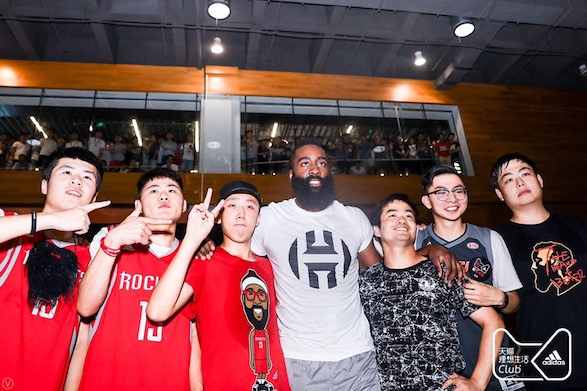
Alibaba Group has merged its Tmall and Taobao Marketplace loyalty programs into a single membership club based not just on transaction volume, but also the level of customer engagement on the Hangzhou-based company’s e-commerce platforms.
The aim, Alibaba says, is to ratchet up the shopping experience for its 500 million users, while leveraging consumer insights to better connect brands with club members.
The new 88 Membership program will offer more members-only brand services, discounts and benefits than the loyalty clubs it replaces. The goal is to deliver a personalized, convenient—and sometimes exclusive—user experience for members, according to Alibaba. For brands—and already 50 of them including Hugo Boss, Rimowa, Clarks, L’Oreal have signed on—the club is a way to identify and market to Alibaba’s most-prolific shoppers, whom they hope to convert into loyal customers.
“We used to place a lot of importance on growth, rapid growth every year,” says Jiang Fan, the head of Mobile Taobao and lead for the loyalty initiative. “Today, we are looking beyond growth to experiences. We care about how consumers feel on the platform. We want to bring them more than just goods, but also a better lifestyle.”
Creation of the 88 Membershipprogramis part of a larger push by Alibaba into what it calls New Retail, which uses technology, interactivity and a mixture of online and offline commerce to deliver efficiencies and enhanced services in shopping. Built into the membership are loyalty tiers that reward greater levels of consumer engagement, as well as those who click “buy” on Tmall or Taobao. That should encourage members to earn points and privileges by sharing product pages to social media, posting questions in community forums or writing product reviews useful to other consumers.
The decision to reward the most-engaged members on its platforms creates a “stickiness” that keeps consumers on the platform and generates still more engagement and greater sales. While unique in the marketplace, the strategy makes sense. Taobao is not only a shopping website, says Jiang, but also “the largest consumer community in the world.”
“So we look beyond metrics of pure transaction,” he says. “It is more than simply rewarding whoever shops the most, but providing better experiences to members who are engaged, credible and consistently active on the website.”

Alibaba uses an algorithm to calculate member points based on everything from the number and variety of stores visited to the types of goods they buy, in addition to engagement. All of this can play out on any Alibaba site, such asonline travel platform Fliggy or ticketing website Taopiaopiao.
Customer points are translated into a score, called Taoqizhi. The higher the Taoqizhi score, the more lucrative the benefits. And Alibaba breaks its members into three distinct groups: Standard Members; Super Members, who have a score of 1,000 or more; and APASS Members who score higher than 2,500.
Last week, Alibaba Group held its inaugural Members Festival, on 8.8, which will become an annual shopping festival to deliver rewards to the club. Super Members were treated to private concert in Shanghai, in addition to discounts in select retail stores such Gap and Old Navy and the Alibaba-owned Intime Malls.

Online, Super Members were offered discount cards entitling them to 12% off—or 88% of the original price—from brands including Hugo Boss, Rimowa, Ray-Ban, Levi’s and Godiva. These members also received a promotion for Tmall Supermarket, allowing them to enjoy more discounts on top of existing rewardscampaigns and access to an exclusive Super Members’ shop on Tmall that offers fresh produce that are available only to them.
Standard Members received their share of benefits as well, such as extra data allowances from mobile company China Unicom or 30-day free access to Alibaba’s affiliate e-book provider Shuqi. For APASS Members, the rewards are more grandiose, such as a personal shopping assistant. Alibaba business units such as Fliggy, Alibaba A.I. Labs, and the group’s digital entertainment division are currently look to enhance these member perks and vying for brands to join in the effort.
Brands, too, are in talks with Tmall to create rewards for shoppers on top of discounts, such as giving members exclusive offline services, faster access to brands’ latest offerings, limited edition or bespoke products.
In turn, they get in-depth insights on shopper preferences and behaviors, making it easier for brands on the platforms to identify target consumers and their demands. Alibaba says it’s critical that members and brands on Alibaba platforms are classified according to these insights, so that users may receive more-convenient services and better benefits.

Alibaba also recently formed a joint venture with global hospitality company Marriott International, which offers benefits customers can enjoy, including access to Marriott’s global concierge service. The two companies also said they eventually plan to link Marriott’s loyalty platform, Marriott Rewards, the Ritz-Carlton Rewards program and Starwood Preferred Guest status with Alibaba’s 88 Membership program.
The initiative would include benefits such as status-tier matching and the ability to exchange and redeem points between the two programs for travel planning and retail purchases. Alibaba has previously said it sees the link-up with brands’ loyalty programs as another way to deliver seamless consumer experiences to its users.
“We provide platforms for brands to reach their consumers,” Alibaba Group CEO Daniel Zhang says. “We see it as our opportunity to build a unique, global brand alliance, where the loyalty schemes of each brand can be connected to Alibaba’s membership system.”
The collaboration with Marriott would be the first crossover membership of many, Jiang says, and that Alibaba is already speaking with hotels, airlines and theme parks about potential rewards.
“We want our members to feel like they have a passport to exclusive experiences within the Alibaba ecosystem,” he says.




